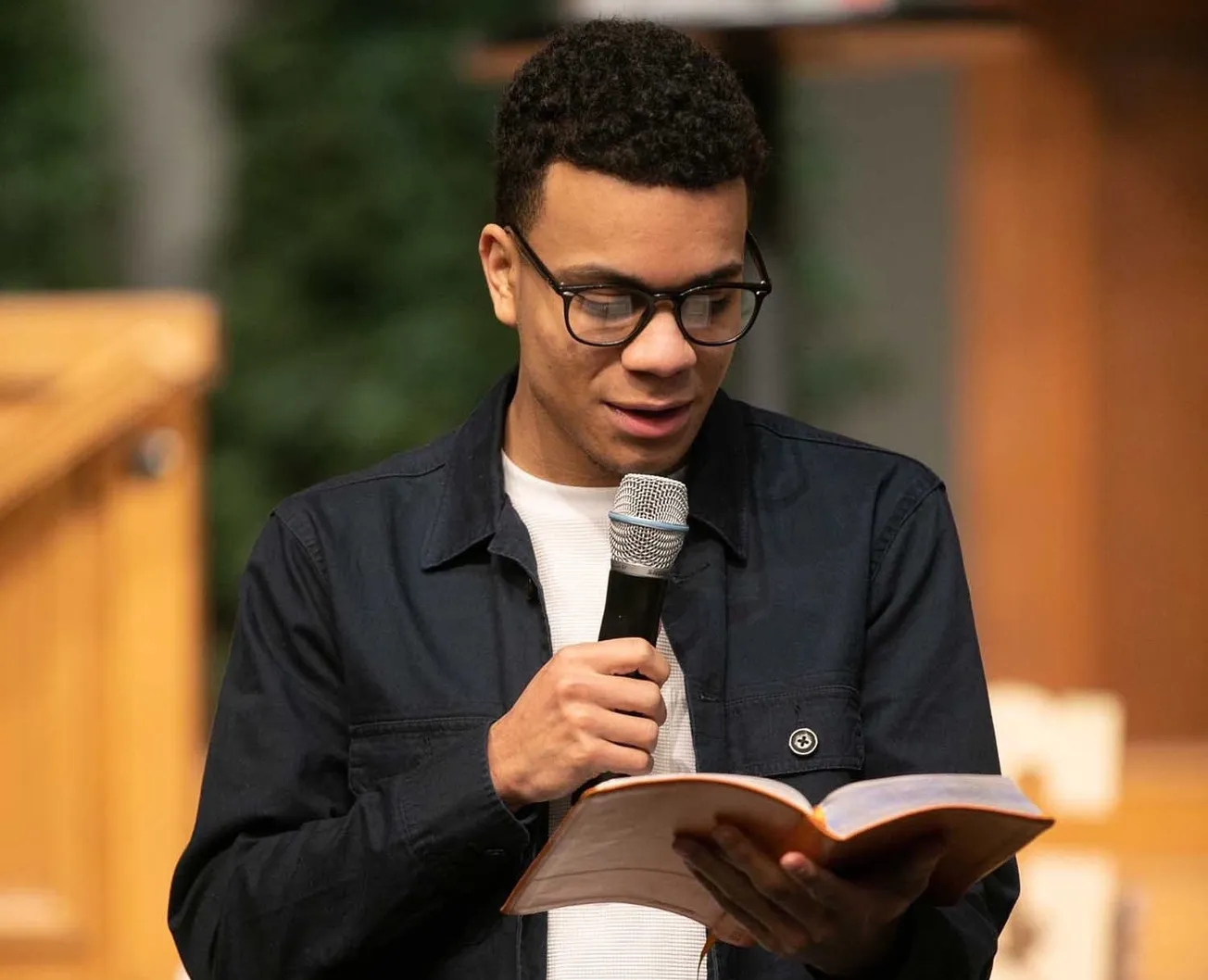Table of Contents
You might think that such a simple question has a very simple answer: unfortunately not! Let me take you through what the Bible says about priests and church, some translation issues and mistakes made in history, and then make some summary statements. Feel free to jump to the end to see the summary!
What Is a Priest?
A priest is a person duly authorised to mediate between a group of people and the divine. They mediate through set, appointed, repeated activity: ritual activity. The ritual activity requires various elements, which may include specific words, actions, objects, clothing, postures, and location. Whatever the elements may be, they are treated as sacred: they are holy, or set apart, for special use. Priests are those who mediate access from people to the divine by sacred ritual activity.
Priests in the Old Testament
The basic Old Testament (OT) understanding of church is the same as that of the New Testament (NT). Church is the gathering or assembly – the congregating – of God’s people. The congregating is around God, whom they meet as one who speaks (Deuteronomy 4). In the OT, the gathering of God’s people is first at Sinai on the Mountain, then in the tabernacle where his glory would descend, and then in the temple in Jerusalem where his name is ‘situated’ and he is symbolically given to reside (Exodus 20, Exodus 40, 1 Kings 8).
But how could an unholy people gather to a holy God? How could God dwell with an unholy people? The question of access to God is paramount, and that’s what priests and their ritual duties were all about.
God authorised the Levites as priests (Hebrew for priest: cohen) (Exodus 32). The priesthood is exclusive to them, and their functions – first with the tabernacle and then with the temple – are treated with the utmost seriousness by God. Unauthorised or inappropriate attempts to access him resulted in swift and devastating judgement. For example, Aaron’s sons were killed by God for attempting just that (Leviticus 10:1), and the priestly tribe of Korah is destroyed by God for claiming to be able to access God on their own terms, saying everyone was holy already (Numbers 16).
So the OT church needed to be consecrated to God (holy) in order to access him, and that’s what the priests were to do. They weren’t free to do so, but could only act as God determined. So the pattern of the tabernacle, its objects, the clothing the priests wore, when and where they could go, what they were to do and offer, the duties they performed: these were all determined by God (cf: Hebrews 8:1-5, 9:1-5).
From among the Levites, the sons of Aaron were the high priestly family, and they performed certain rituals themselves. Especially, the high priest was to enter the Holy of Holies once a year, and make atonement for the people (Leviticus 16; see also Hebrews 9:6-7).
In fact, the entire Levitical system, and the functions of the high priests, were covered in blood. Without the sacrifice of blood, no access was possible, because no forgiveness was possible (cf: Hebrews 9:18-26).
The Levitical priesthood – the mediation and access to God through blood – was thoroughly inadequate. It could teach and point to what was needed, but could not achieve it itself (Romans 7). The priests were themselves sinners, they were mortal, and the blood of bulls and goats was totally unsatisfactory for human forgiveness and access to God. So the rituals were performed repeatedly with no sufficiency or efficacy. Only the High Priest could enter the Holy of Holies, and that only once a year: access was essentially still barred.
In effect, the entire enterprise highlighted just how far the Israelites really were from truly having access to God under the Old Covenant. We needed something better: a priest, blood, and Holy Place far grander than that offered in the Old Covenant.
Jesus is Our Great High Priest
And that is exactly the argument of the Book of Hebrews, especially in Chapters 7-10. God intended the Levitical system to be inadequate all along. The Old Covenant priestly system was only ever a shadow of the Great High Priest, Jesus Christ, and his priestly activity.
Jesus offered his own blood, once for all, a full, complete, and perfect sacrifice; he is a perfect high priest who lives forever. He’s not a Levitical priest, but of the ‘order of Melchizedek’: the king-priest without beginning or end of days (Hebrews 7; Psalm 110). The location where Jesus did this work is no earthly place, but in the very presence of God himself. He is both advocate and intercessor. Christ alone mediates this new covenant. And as the new reality that supersedes the old shadow, Jesus brings the OT Levitical priesthood to its end (Hebrews 8:13).
The Church Does Not Have Any Other Priests
In bringing the OT shadow of priests to fulfilment, Jesus has done away with the OT system: it’s obsolete. In consequence, nowhere in the NT is the church described to have, or commanded to have, priests. The only priest the church has is Jesus.
Reflecting the reality that the church has only one priest, Jesus, nowhere in the New Testament are the authorised leaders of the church called ‘priests’. This is telling since, while leaders are described as under-shepherds of Jesus, the chief shepherd, nowhereare leaders given the sacral, ritual activity, or mediatorial language of Jesus.
That makes sense: because Jesus alone achieved that. To say or act otherwise in church-life implies that his work is incomplete, or that salvation is dependent in some fashion on our own human mediation, or our own rituals. The Bible has a very low view of such ‘gospels’, and reserves special condemnation from God for false truths. To require other than God requires is idolatry: seeking to worship God by our own means rather than those determined by him, and is forbidden in all Scripture.
Therefore, nowhere in the New Testament is church described as needing or performing any activity that performs sacred activity to access the Father. Nowhere in the New Testament is church described as needing certain words, or objects, or spaces, or clothing, or posture in order to access God. The sanctification (making holy) and the access are already there in Jesus (made effective by the Spirit). We are already in the presence of God in Christ Jesus. (Ephesians 2:6, Colossians 3:1-4, Hebrews 12).
In fact, as Hebrews makes clear, the primary function of church in the here and now is to express the spiritual reality we already have in Jesus. We’re already gathered as church in God’s presence spiritually. Our local gatherings simply reflect that truth. In Hebrews 10:20-25, the consequence of recognising the heavenly gathering makes the local gathering vital, not to gain access, but to respondto the access we already have.
So, does the NT church – the assembling of God’s people around God – have priests? In the OT Levitical sense, an unequivocal and emphatic ‘No!’; but if we’re speaking about Jesus, an unequivocal and emphatic ‘Yes!’. By his blood, Jesus as our high priest gives access to the Father.
Are Ministers ‘Priests’?: The Reformation
As you can see, who we see our priest to be – Jesus or our ministers – goes to the very heart of what we think church is, and what we think ministers are.
The biblical understanding of priesthood and ministry (that is to say, God’s understanding) was recovered at the Reformation. It’s hard for us to fathom just how few people knew what the Bible said at that time, and how significant the mediatorial role of the minister had become. It’s only as those ministers started reading their Bibles in Hebrew and Greek again that they realised just how corrupt the idea of priesthood had become in the Roman system, and it went to the heart of the gospel and the nature of salvation, and the fruit of salvation, too (that is, church).
For instance, there is a reason why we always pray confession corporately in our Anglican system. It’s because the Romans insisted the ‘priest’ must pray the confession on our behalf, because they were the mediators between men and God. So Cranmer insisted we confess sin in a way the minister could not be mistaken for being a mediator. Can you imagine the first time in someone’s life when they realised that they could pray themselves to God, rather than needing the local minister?
Again, the wording and rubrics of our Communion services (those red explanatory sentences in the prayer books) are constructed almost entirely around the rejection of the Roman Mass: that the priest is somehow sacrificing Jesus again to God. So much so that Cranmer had a couple of goes at writing it because the Romans kept coming back and saying ‘I can still read your service in a Roman way!’
Sadly, the Roman church still sees its priests in an OT Levitical sense, despite the explicit repudiation of its continuance in the NT, and the refusal of the NT to describe church leaders in such a way.
This is why, still today, many people see church in ritual and mediation terms. This is especially the case for Anglicans when Roman theology began to seriously influence the Anglican Church in the nineteenth century. The key clergyman in this was John Henry Newman, who later became a Roman priest himself. Far better he’d just gone straight away rather than teaching Roman theology in the Anglican church for so long!
So for many today, church is still seen as the conduct of ritual activity – especially by the minister – to give and carry out prescribed service to God. The minister may be required to do any and all of the following on the view that he is somehow a priestly mediator: to wear certain clothes, say certain things, stand in certain places, and perform certain duties, especially in communion. Such an understanding of church leadership is completely foreign to the Bible’s understanding of church.
And it is those things that the Reformation rejected. Because we have access to the Father in Jesus, by the Spirit we are already gathered spiritually. Church in the here and now is where together we meet with God in the place where he has given us to meet him: his Word (Deuteronomy 4; Hebrews 12). We express temporally what we already have spiritually.
This is why the Scriptures – their reading, preaching, application, singing, and praying – are foundational to church-life (1 Timothy 4:12, Colossians 3:16-17, Ephesians 2:18-22, etc.). And the sacraments (Baptism and Communion): there are visible proclamations of the Word, as the Prayer Book puts it.
Don’t get me wrong: the Reformers – especially the Anglicans – were very clear that church needs to be ordered (because the Bible says it – 1 Corinthians 14), and how we respond to God and shape our meetings is not to be done lightly or carelessly – hence our set forms in the prayer books. And ministers do have a vital role: it’s just not mediation, or ‘priestly activity’.
[In the NT, there are 4 times where priestly language is used of the church. But it is always connected to the church as a whole, as the kingdom of God, and applied to all believers corporately. Together, in fulfilment of Exodus 19:3b-6, we have a ‘priestly’ role to mediate the good news and praise of God to this world. 1 Peter 2:5,9.]
Doesn’t The Prayer Book Call Ministers ‘Priests’?
Here’s where things get a bit confusing, and the confusion has caused no end of problems in Church History. The word we use as ‘priest’ has been made to do double-duty, and it causes much confusion as a result. Here are the terms in the Bible, their meaning, but also how they used to be translated in English:
Biblical Word Meaning Old Translation
Cohen (Hebrew) Priest Priest
Hiereus Priest Priest
Episkopos Overseer Bishop
Presbyteros Elder Priest
Diakonos Servant Deacon
You can see from this both where the ‘threefold’ order of ministry emerged from (Bishops, Priests, and Deacons). You can also see how two completely different biblical concepts, ‘priests’ and ‘elders’, where translated with one word. When elders were called ‘priests’, elders suddenly took on associations of doing priestly activity which is exclusive to Jesus. It’s a non-existent association in the biblical languages themselves, however.
To push further, episkopos and presbyteros (overseer and elder) are synonymous in the New Testament. They are used interchangeably, and often in the same sentence (e.g., Titus 1:5-7).
So the New Testament sees only two offices when it comes to church leadership: elder/overseers and servants/ministers (cf: 1 Timothy 3:1-15). You can soon read more about this in Sydney Diocese’s recent Doctrine Commission report into the matter when it’s released online (https://sds.asn.au/doctrine-commission).
All the confusion mentioned above is why, in Sydney Diocese, the Episcopate has sought to clarify language and understanding in recent years. The Doctrine Commission report makes clear that, while Episcopacy (bishops) is not a NT concept, it is nevertheless compatible with it, and good for the order of the church.
On the other hand, calling an elder a ‘priest’ is not only absent in the original languages of the NT, but also associates elders with a role that is exclusive to Jesus. That is, it runs the danger of serious error. As a result, Sydney Diocese reframed its language to avoid the conflation: ‘priests’ are now called ‘presbyters’ in church ordinances, the Ordinal, and the Prayer Book.
What, then, Is a ‘Minister’?
In biblical language – that is, in God’s understanding – a minister is an elder-overseer of God’s people. The Sydney Anglican term for this is ‘presbyter’ in an effort at clarity away from ‘priest’. An elder-overseer has ‘oversight’ of a church. An elder-overseer is also called a shepherd in 1 Peter 5, and shepherding (pastoring) is a common metaphor for church leaders. Further, the one gifted qualification of an elder (as opposed to their character) is that they are able to teach.
So an elder-overseer is also a teacher-pastor. Using further biblical language, they are ministers (servants) of the word and prayer.
In Anglican polity, eldership-oversight of a church comes at the appointment of the Bishop. In Sydney’s and many others’ polity, appointment is subject to the Bishop, but independent of him: a ‘rector’. In some other dioceses ministers might be appointed as ‘vicars’ (representatives of the bishop. Melbourne is like this). Some dioceses have a mix of both (where we were in Cambridge – Ely Diocese – is like this). Wardens and Parish Council are not elders. They are godly, appointed, physical-resource stewards, as per the model set in Acts 6:1-7.
What does a minister do? Their role is simply (!) to minister the word and prayer. Their role is to teach sound doctrine, refute those who oppose it, and model a godly life lived out from it – both individually and as a family (Titus 1, 1 Timothy 3-4). Their role is to equip church members for ministry themselves, and to shepherd them to maturity in Christ (Ephesians 4:1-16). Their lives and doctrine matter, as they are accountable to God for what they say and do with his people (Hebrews 13:7,17)!
In all this, the Bible says nothing about ritual activity: their words, clothing, posture, location, action, etc. But the Bible has a lot to say about the character of those things. They are to speak truth in love, patiently and in kindness, in season and out. They are to affirm truth and refute error. They are to dress humbly, not with flashiness or extravagance. They are not to seek to be first or have pride of place at gatherings, but in love, put others before themselves. They are to help the weak, seek the lost, bind the injured, lift the burdens of those weighed down. In other words, they are to model the life that every Christian ought to aspire to in Christ.
Further, in our Anglican polity, the Prayer Book – praise God – orders our meetings in such a way as to stop a lot of misconception about what a minister is. And certain oaths are required about what we can and can’t wear to further remove any sense of Anglican ministers being ‘priests’.
What about liturgy? I’m all for liturgy – but more of that next week. What about ‘worship’? What is it and isn’t that what church is for? Again, more next week!
Summary
· A priest is a mediator of access between men and God through the performance of ritual activities.
· The Old Testament priesthood and sacrificial system is brought to fulfilment and an end in Jesus.
· Jesus is the only priest the church has: he is our one mediator between God and men, and it’s his activity and sacrifice of blood that gives access.
· Church is not the performance of a ritual to gain access to God. Church is the temporal expression of the access/presence we already enjoy spiritually.
· A minister is an elder-overseer, a teacher-shepherd. A minister is not a ‘priest’ in an OT or Jesus sense, even though the word ‘priest’ has unfortunately been used at times in history for their role.









